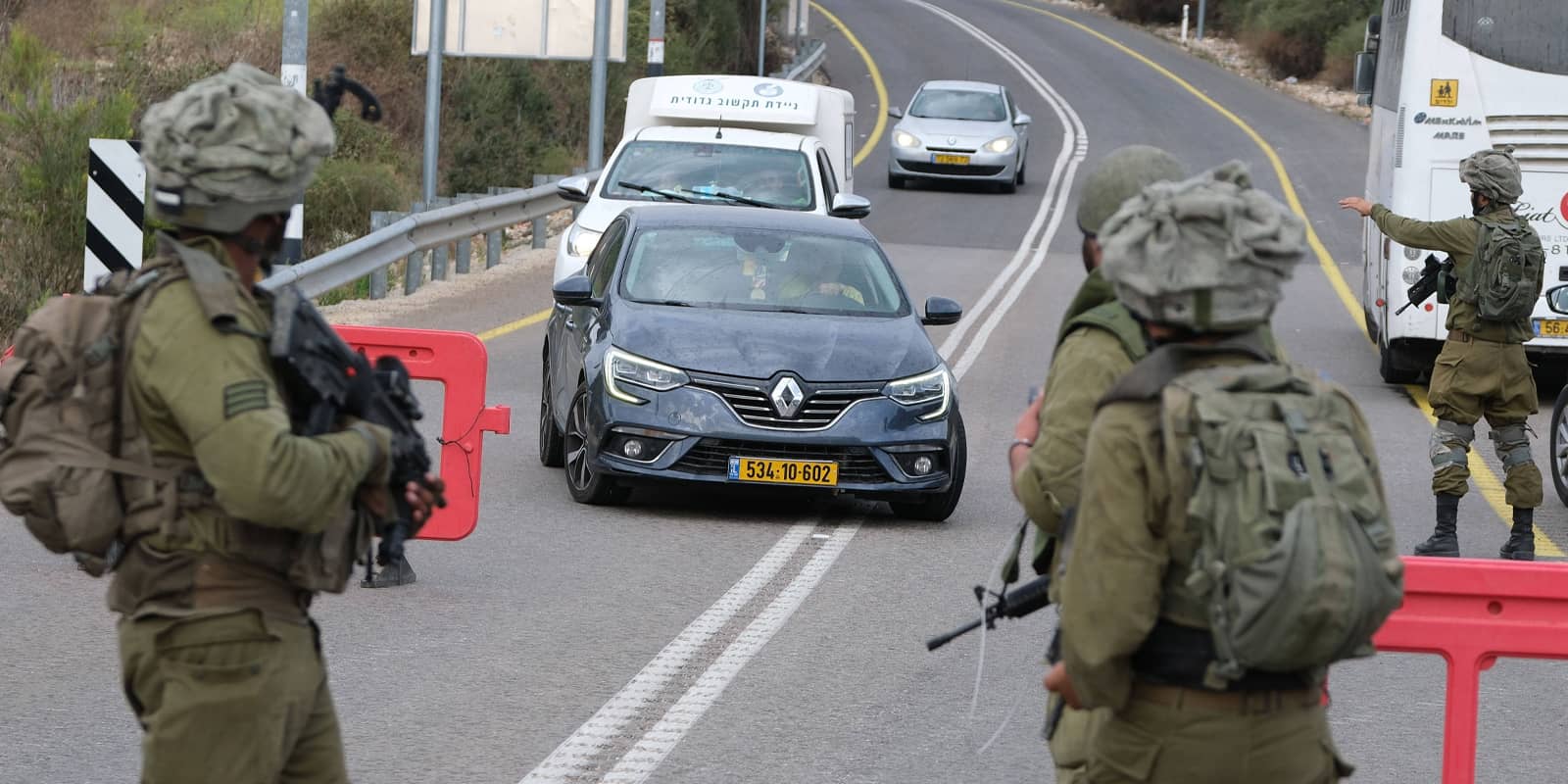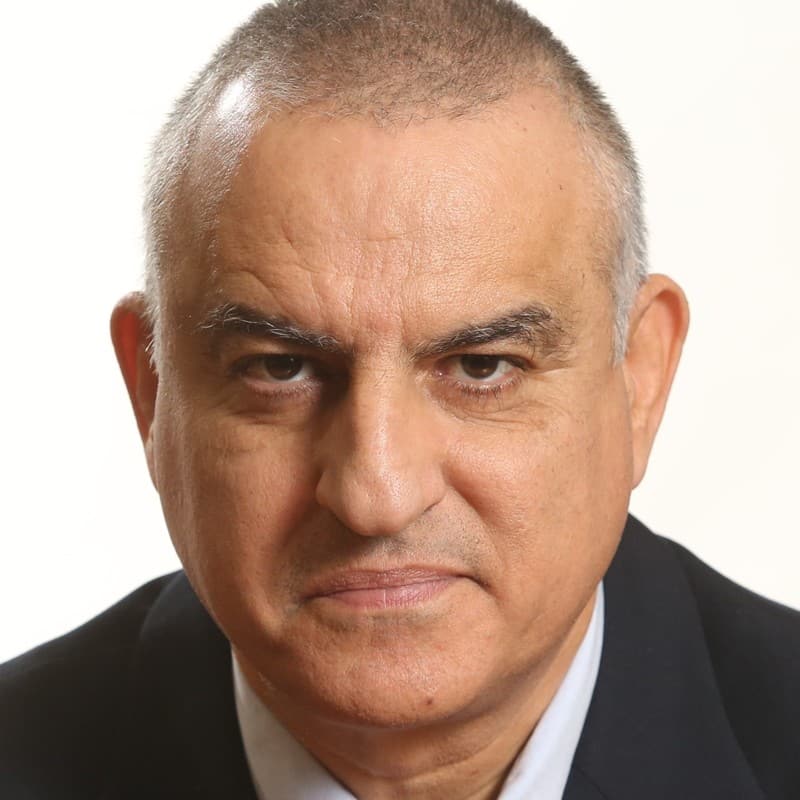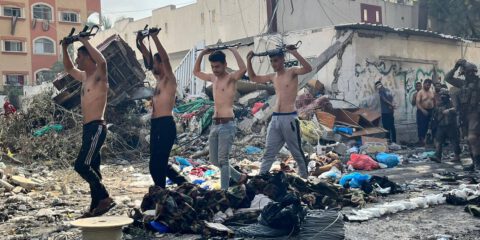Israel must fight until the military capabilities and leadership of Hamas and the other organizations in Gaza are destroyed.
On Saturday morning, October 7, 2023, Israel was surprised by a Hamas attack. The terrorist organization managed to plan, train, and carry out a synchronized surprise strike, and IDF soldiers found themselves completely inferior to the flow of forces and the daring of Hamas. Although we do not yet have all the details, it is clear that Hamas built very effective offensive operational capabilities. Hamas operated in a coordinated manner in a few locations, penetrated the Gaza barrier without opposition, overcame the second line of defense by taking over IDF camps, and carried out a killing spree while abducting soldiers and civilians to Gaza. It also captured military equipment and transferred it to the Gaza Strip.
Now is not the time to investigate intelligence and operational failures. There will be plenty of time to analyze the reasons for the complete collapse of the security system along the Gaza border. What must be done now is to support those who work to restore the status quo ante inside Israeli territory and to launch a devastating attack on Hamas.
As of now, the fighting is confined to the southern front. Nevertheless, we must be prepared to fight on other fronts as well. A perilous scenario is a multi-front war. In addition to Hamas in the Gaza Strip:
* The Lebanese front can be activated by Hezbollah and by Palestinian terrorist organizations in Lebanon
* We may see attacks by Shi’ite militias from Syria on the Golan Heights
* Terrorist activity and riots in Judea and Samaria could intensify
* Israeli Arabs might block roads, infiltrate IDF camps, and kill Jews in mixed cities
All of these could be under Iranian guidance.
Preparing for immediate action must be taken on two levels. The first is a clear definition of the objectives of the war that can be translated into military missions. Israel should also attempt to isolate the arena of operation to prevent or at least postpone a multi-front contingency. The second level concerns the need to carry out an urgent overhaul of the IDF’s ground forces that will enable the IDF to realize the strategic goals set for it by the political echelon in the best possible manner.
The isolation of arenas can be achieved partly by publicizing the concentration of forces in the north. The mobilization of forces has been carried out. Still, it must be ensured that the enemy internalizes the readiness of the IDF forces to launch an immediate attack on Lebanon should Hizballah launch a challenge. Complementary diplomatic messages could help Hizballah’s and Lebanon’s leaders understand the devastating implications should fighting extend to Lebanon.
Simultaneously, Israel must enhance preparedness for hostilities within the country. For this purpose, IDF reservists must be immediately recruited because the police, Border Police, and the still nascent Civil Guard will not be sufficient. They may face scenarios similar to or more severe than those encountered during Operation Guardian of the Walls in 2021. The reservists need a short training period and are to be sent to potential areas of conflict after being granted the legal authority to use force against civilians within the State of Israel. This operation must be carried out urgently within the framework of the current combat effort.
The IDF’s combat objectives must be clear, with the goal being to eliminate Hamas leadership (military and political) while destroying all the military capabilities of Hamas and other Palestinian terrorist organizations in the Gaza Strip. The IDF must free itself from the limitations it has imposed on itself, especially regarding its firing regulations. Israel should adhere to international humanitarian law (IHL) guidelines with no additional limitations. Any installation used by the enemy is a legitimate military objective. Realizing such an ambitious goal would require the IDF to occupy the Gaza Strip or parts of it and destroy all military infrastructure. That task can take many months, but it must be carried out if we want to live.
The attack on Hamas in Gaza will weaken its branches in Judea and Samaria and reduce terrorist activities in this region. Hitting Hamas in Gaza will also negatively affect its appeal among the Palestinians wherever they are.
The IDF must also urgently recruit its best field commanders for the campaign. The order of the day is the need to mobilize all command resources on the ground. IDF field formations have been neglected for many years. It is imperative to place at the head of the forces (at all levels of command, including division commanders and brigade commanders) the best former commanders of the IDF, even if they are of advanced age. One can think of many commanders imbued with determination who will immediately report to war.
The State of Israel and the people of Israel have known many crises and have withstood difficult times. Israel can emerge victorious this time, too. It will be costly, but a historic opportunity has been created here to reshape the Palestinian and regional arenas. Israel must not repeat past mistakes by settling for weakening the terrorist organizations and hurrying to reach a ceasefire. Israel must fight until the military capabilities and leadership of Hamas and the other organizations in Gaza are destroyed. International pressure to reach a ceasefire will come. We must not blink in the face of the impulses of the so-called “international community.” We must withstand all the pressures and get the job done.
JISS Policy Papers are published through the generosity of the Greg Rosshandler Family.
Photo credit: IMAGO / Saeed Qaq / FADI AMUN








 - בניית אתרים
- בניית אתרים